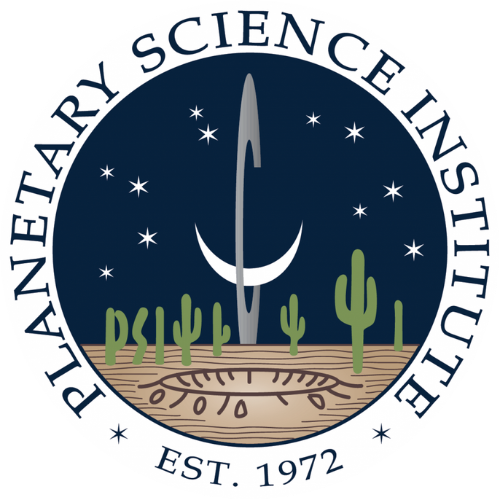A three-year, $800,938 grant from NASA will fund a Tucson-area Earth Camp where participants will be immersed in the study of water.
The Laurel Clark Earth Camp Experience, a partnership between the Arizona-Sonora Desert Museum, the Planetary Science Institute and Arizona Project WET at the University of Arizona Water Resources Research Center, will use NASA data for the Earth to teach teens, teachers and the public about water.
“Our team of scientists and educators at the Planetary Science Institute looks forward to contributing to the expansion of the Laurel Clark Earth Camp Experience and to working with colleagues at the Arizona-Sonora Desert Museum and the Water Resources Research Center,” said David Crown, a co-investigator on the NASA project and Assistant Director of the Planetary Science Institute. “The partnership of these three Tucson institutions should result in an innovative program for improving science education.”
“The PSI scientist/educator team will support the Laurel Clark Earth Camp Experience project through design of and instruction in training activities for educators and by providing expertise on the availability, manipulation, and visualization of NASA datasets for the Earth,” Crown said.
Programs and interactive exhibits will look at water resources on a “powers of 10” framework, from the smallest scale properties of the water molecule to intermediate scales of water in the desert ecosystems to the global scale of climate change and predicted impacts on the water cycle.
The Earth Camp will be composed of six elements: Workshops for Informal Science Educators, Summer Earth Camp Programs for Teens, Teacher Earth Camp, Exhibit Design Workshop (with traveling poster and on-line exhibits) and Earth Clubs at Schools, with all coming together to create a cohort of Earth Stewards dedicated to education and informed environmental decision-making.
The project will expand Earth Camp, first established in 2005, in several ways, Crown said.
It will use recruiting and scholarships to include a larger number of students from underrepresented groups; increase the duration and amount of contact time with students; add teacher cohorts through professional development workshops and follow-on contact so that teachers will receive support for incorporating NASA data into their science teaching and be encouraged to establish Earth or Environment Clubs at their schools; and establish Laurel Clark Earth Stewards Cohorts for implementation of activities related to the content matter of Earth Camps at Arizona-Sonora Desert Museum and community events.
The Arizona-Sonora Desert Museum is the lead organization on the project, which is named after Laurel Clark, an astronaut who lost her life in the Columbia space shuttle tragedy.
“The expansion of the Earth Camp Experience is a very meaningful extension of the Arizona-Sonora Desert Museum’s vision to create innovative learning experiences about our planet,” said Robert Edison, ASDM Executive Administrative Director. “This represents a significant achievement in the Desert Museum’s mission to foster understanding of the natural world and we are honored to be selected by NASA.”
“We’re very excited to receive our first NASA grant which will give students the tools to navigate the complex environmental issues and decisions they will face during their lifetimes, said Debra Colodner, Project Director and Desert Museum Education Director and Earth Scientist. “Using snapshots of the global view enjoyed by Laurel Clark, teens and teachers will learn and teach others about the connections between their lives and the changing Earth System.”
The Arizona-Sonora Desert Museum/Planetary Science Institute/Arizona Project Wet team was one of nine groups selected to receive a total of $7 million in grants from NASA’s Competitive Program for Science Museums and Planetariums. The NASA program focuses on enhancing educational outreach related to space exploration, aeronautics, space science, Earth science and microgravity.
David Crown, Thea Canizo, Sanlyn Buxner and Alice Baldridge of Planetary Science Institute worked with Desert Museum staff to develop an education and public outreach proposal for the program.
“Science centers and planetariums contribute significantly to engaging people of all ages in science, technology, engineering and math,” said James Stofan, acting associate administrator for NASA’s Office of Education. “NASA wants to give the informal education community access to a variety of agency staff and resources while offering professional development opportunities for informal science educators and encouraging the formation of collaborative partnerships.”
Contact
David Crown
Assistant Director
520-622-6300
[email protected]
